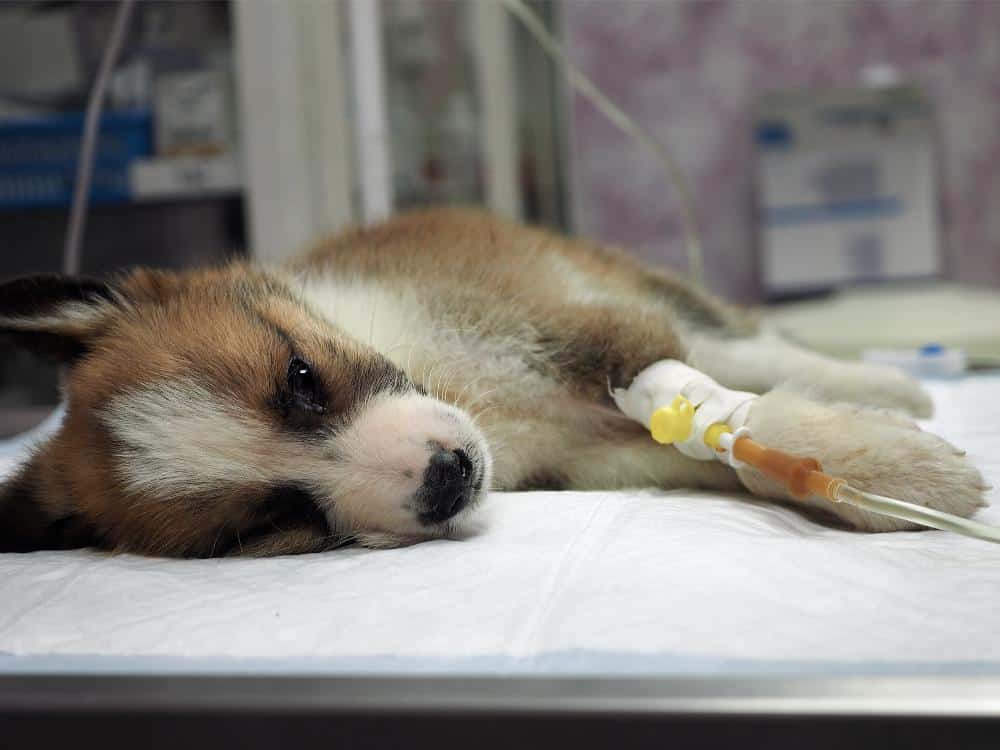Parvovirus in Dogs

Canine parvovirus, commonly known as “parvo,” is a highly contagious and potentially fatal virus that affects dogs. What makes parvo particularly dangerous is its ability to survive in the environment for extended periods and resist common disinfectants. The good news is, there is a vaccine that provides effective protection against parvo.
In this blog, our team at Cherry Creek Veterinary Hospital shares important information about parvo, including symptoms to watch for and ways to protect your puppies and adult dogs from this highly contagious virus.
What is Parvovirus?
Canine parvovirus is a highly contagious disease caused by the canine parvovirus type 2 (CPV-2). Parvo targets white blood cells and the gastrointestinal tract of unvaccinated dogs, and those that haven’t received all of their vaccines. In puppies, parvo can also cause heart damage.
Some breeds tend to be more vulnerable to parvo, including Dobermans, German shepherds, rottweilers, labrador retrievers, and bull terriers.
What are the Symptoms of Parvo?
Dogs infected with parvo exhibit a range of symptoms, which can vary in severity.
Common symptoms include:
- Severe vomiting: Often continuous and can lead to dehydration
- Diarrhea: Usually bloody, foul-smelling, and accompanied by abdominal pain
- Lethargy: The dog may appear extremely tired and weak
- Fever or hypothermia: Fluctuating body temperature
- Loss of appetite: Refusal to eat or drink
- Weight loss: Rapid weight loss due to dehydration and lack of nutrient absorption
How Does Parvo Spread?
The virus is highly contagious and spreads through direct contact with an infected dog or by indirect contact with a contaminated object or environment. It can be transmitted through:
- Fecal matter: The virus is shed in the feces of infected dogs and can contaminate soil, surfaces, and objects.
- Shared items: Bowls, leashes, toys, and bedding that have been in contact with infected dogs.
- Human interaction: Hands, shoes, and clothing of people who have handled an infected dog or touched contaminated surfaces.
Protecting Your Puppy or Dog From Parvo
Preventing parvovirus infection is crucial, especially for puppies and unvaccinated dogs. Here are some steps to protect your precious pooch:
- Vaccines: Ensure your dog is vaccinated against parvo. Puppies should receive their first vaccination when they are 6-8 weeks old, followed by boosters until they are 16-20 weeks old. Adult dogs should receive regular booster shots as recommended by your veterinarian.
- Socialize safely: Choose doggie daycares and other pet services that require up-to-date vaccines.
- Hygiene: Maintain a clean environment for your dog. Regularly disinfect areas where your dog spends time and avoid contact with feces.
- Isolation: Keep puppies and unvaccinated dogs away from potentially contaminated areas and unknown dogs until they are fully vaccinated.
- Monitoring: Seek immediate veterinary care if your dog exhibits any signs of infection.
Protection Begins With Prevention
By understanding parvovirus and taking preventive measures, you can significantly reduce the risk of your dog contracting this serious disease. Please contact us at (916) 349-2755 to schedule a wellness visit. We can make sure your dog is properly protected against parvo.
